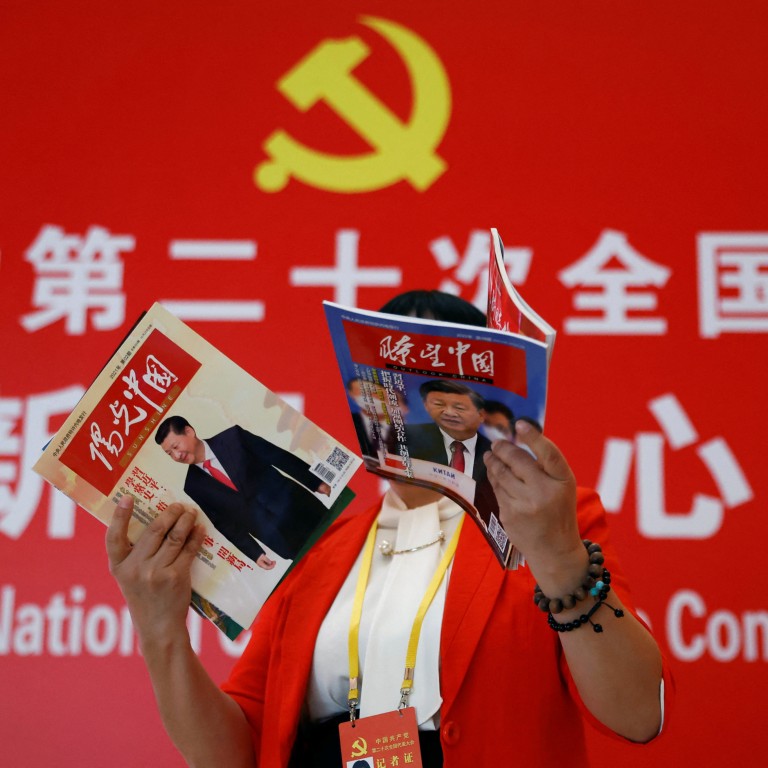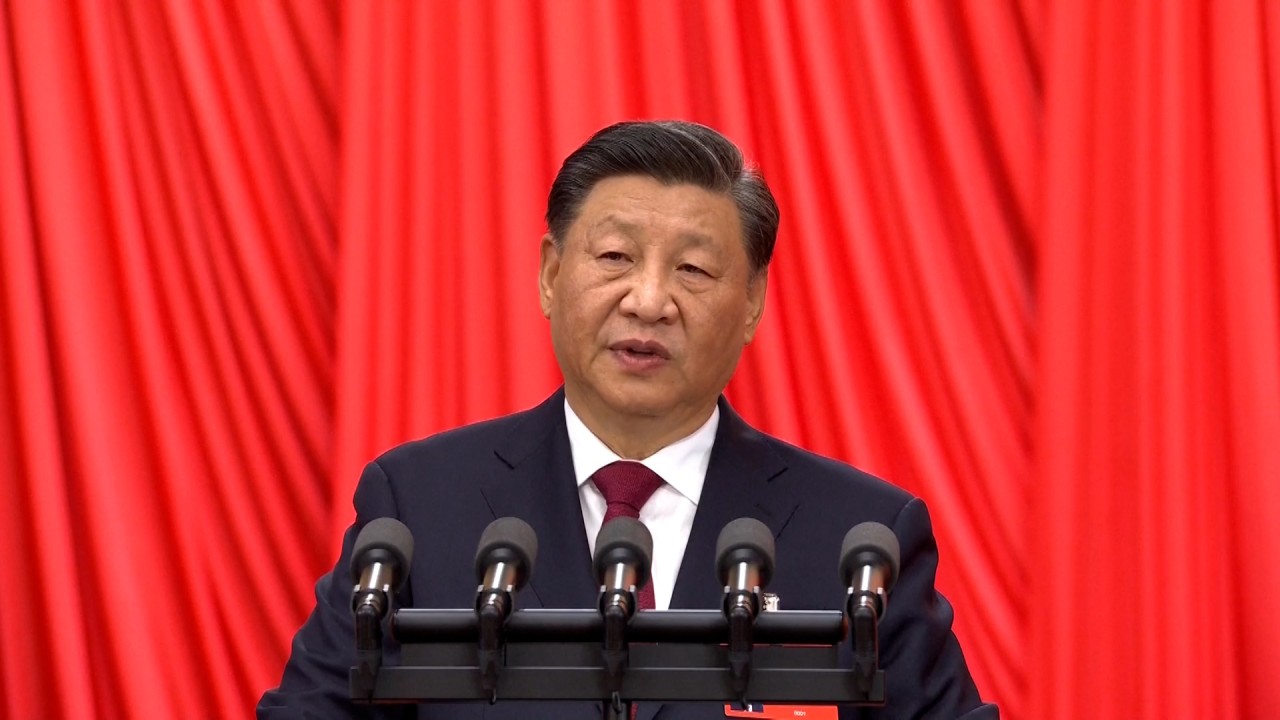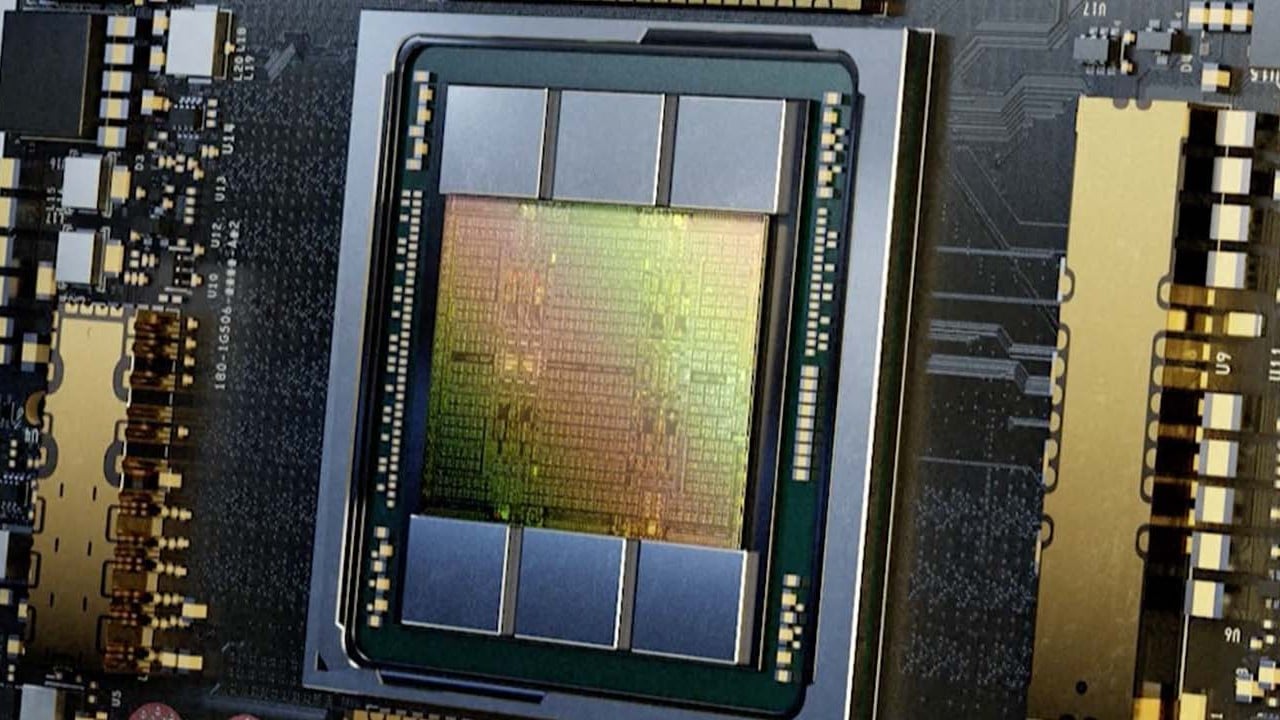
Can Hong Kong reprise its role as China’s intermediary and window on the world?
- China’s new-era socialist system is here to stay but economic reform and opening will continue, as will the successful ‘one country, two systems’
- If Hong Kong wants to continue to succeed, its people must maintain their capacity for independent thinking, courage to give honest advice, and outward-looking character
The central message in the report’s first three sections is that the party, under Xi’s leadership, has firmly established a socialist system with Chinese characteristics, which fits in well with China’s society and blends seamlessly with China’s cultural and political traditions.
For the world, the message is that China’s new-era socialist system with Chinese characteristics is here to stay, despite a strong push by some Western powers to wage an ideological battle between democracy and autocracy, and put China squarely in the latter camp.
The importance of Xi’s ideological triumph cannot be overemphasised. It marks the culmination of a 100-year quest for a form of government that fits China’s political, social and cultural realities, and can solve people’s problems.
The quest dates back to Chinese intellectuals’ advocacy of constitutional monarchy in the late Qing dynasty, to early Communist founders’ exploration of Western-style electoral democracy, to the eventual installation of communism in mainland China in 1949.
While the state will set strategic directions, full use will be made of the market mechanism to allocate resources, ensure fair competition, raise service standards, protect property rights, improve the business environment, expand market access and deepen reform.
China understands too well that its second “100-year dream”, of national rejuvenation, hinges on growth. Economic reform and opening up under strategic control has to be its default choice.
Many forget that one country, two systems was first mooted by Deng Xiaoping in the early 1980s with Taiwan in mind. With order restored and economic growth recharged, Hong Kong is once again an exemplar of how one country, two systems can work for Taiwan.
The geopolitical situation has changed radically since 1997. At that time, China was facing tough negotiations to join the World Trade Organization, while Hong Kong was lobbying for the US to renew China’s most favoured nation trading status.
Although the two nations are not quite at daggers drawn, China has to brace for more hostilities on other fronts.
China’s heightened sense of national security threats arising from Western containment gives Hong Kong a new opportunity to reprise its role as China’s intermediary and window on the world. This is a role Hong Kong played extremely well before China’s newly modernised cities emerged as global business and financial hubs.
Hong Kong is well positioned to maximise its competitiveness by leveraging its strong support from Beijing and making full use of its separate systems. But if Hong Kong wants to continue to succeed on this formula, its people must maintain the capacity for independent thinking, courage to give honest advice, and outward-looking character. No one owes Hong Kong people a living. We can only thrive if we work hard to continue to make a difference.
Regina Ip Lau Suk-yee is convenor of the Executive Council, a lawmaker and chairwoman of the New People’s Party




